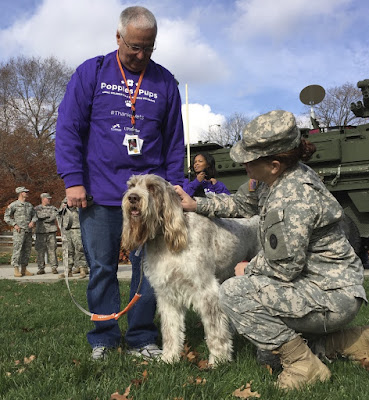It is uplifting to see the gratitude that Americans exhibit toward the one percent of our population that serves in the all-volunteer military of our country, this rounded statistic according to the Department of Defense. These men and women have chosen to serve our country and will later return to productive civilian life. They are sorely needed as we are experiencing a shortage of qualified workers here in our area and nationally. There are several factors causing this.
- Unemployment nationally and locally ranges between 4-5%. That is considered full employment.
- Our educational system educates, but doesn’t typically teach marketable skills at the secondary and even post-secondary levels in many disciplines.
- Employers are finding it difficult to locate potential employees with the right work attitude and people skills.
Military veterans, by nature of their service, present both job-specific skills and the right attitude toward work, customers and fellow workers. The Bureau of Labor Statistics places unemployment among returning veterans the same as at the national levels, so most veterans come home prepared to enter the workforce. However that masks the challenges that a minority of returning veterans face in acclimating to civilian life.
Pew Research estimates that 10,000 Baby Boomers (born 1945 to 1964) will retire each day for the next 19 years. As Baby Boomers retire in increasing numbers, we will face an even tighter job pool from which to hire. This will result in higher pricing for goods and services and maybe even disruptions in the supply chain. Taking full advantage of the skills and life experience of returning veterans is mandated, as well as being the right thing to do for those who served our country.
The Department of Defense research studies put the ratio of returning vets with stress related issues at 10-18%. That doesn’t make them unemployable, but they may need adjustment assistance. My reading on the subject indicates that past wars and military campaigns were no different – they just weren’t as closely studied.
That’s where the Pets for Vets program at Animal Friends comes in to help. Emotional support dogs, trained to the unique needs of the veteran experiencing a physical or emotional challenge, are provided free, including complete starter equipment and ongoing consultative support. If a dog isn’t right for the veteran’s lifestyle, a companion cat or domesticated bunny serves very well in its place.
That’s where the Pets for Vets program at Animal Friends comes in to help. Emotional support dogs, trained to the unique needs of the veteran experiencing a physical or emotional challenge, are provided free, including complete starter equipment and ongoing consultative support. If a dog isn’t right for the veteran’s lifestyle, a companion cat or domesticated bunny serves very well in its place.
The monetary fund that supports Pets for Vets is named in memory of Major Ben E. Follansbee, a Green Beret and Army Ranger who succumbed to the stresses of his multiple combat deployments. Ben is one of the estimated 22 military veterans who take their own life every day. The Pets for Vets program at Animal Friends is meant to mitigate that statistic through the documented lifesaving power of companion animals.
- Referring a veteran who may benefit to this program, which can be found described here.
- Make a tax-deductible contribution. Checks should be made payable to Animal Friends and memo noted that it is for the Pets for Vets program. Send to Animal Friends, 562 Camp Horne Road, Pittsburgh, PA 15237.
- Refer a companion animal trainer to the program. The trainer’s compensation is covered by the Major Ben E. Follansbee Memorial Fund.


No comments:
Post a Comment